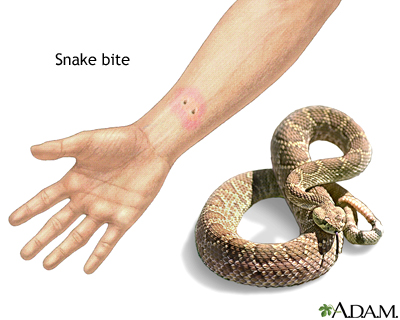Debunking the Myth: Can Snakes Really Bite Through Rubber Boots?
For outdoor enthusiasts and workers who venture into areas where snakes are present, understanding the risks and taking necessary precautions is crucial. One of the most pressing concerns is the possibility of snake bites, particularly when it comes to footwear. The question on many minds is, can a snake bite through rubber boots? This inquiry is not just a matter of curiosity; it’s a vital consideration for those who may encounter snakes in their line of work or during outdoor activities. In this article, we’ll explore the facts and myths surrounding snake bites and rubber boots, providing a comprehensive answer to this essential question.
The Anatomy of a Snake Bite: Understanding the Mechanics
Before delving into the world of snake-proof footwear, it’s essential to understand the mechanics of a snake bite. Snakes are highly efficient predators, and their venom delivery system is a remarkable example of evolutionary adaptation. When a snake bites, it uses its fangs to inject venom into its victim. The fangs are designed to penetrate deep into tissue, and the venom is delivered through a complex system of muscles and glands.
The pressure and force involved in a snake bite are considerable. The average venomous snake can exert a bite force of around 300-400 pounds per square inch (psi), with some species capable of generating forces of up to 900 psi. This is sufficient to penetrate most materials, including rubber. However, the question remains: can a snake bite through rubber boots?
The answer lies in the specifics of the bite itself. Snakes are adapted to biting and injecting venom into flesh, not through thick, rigid materials like rubber. While a snake may be able to exert significant force, its fangs are not designed to penetrate thick, hard surfaces. This is where the type and quality of rubber boots come into play.
Rubber Boot Materials: Are They Snake-Proof?
Rubber boots are made from a variety of materials, each with its own unique characteristics, strengths, and weaknesses. When it comes to snake bites, the type and quality of the material used can make all the difference. Some common materials used in rubber boots include natural rubber, synthetic rubber, and polyurethane-coated materials.
Natural rubber boots are often the most affordable option, but they can be prone to punctures and may not provide adequate protection against snake bites. Synthetic rubber boots, on the other hand, are more durable and resistant to punctures, making them a popular choice for outdoor enthusiasts and workers. Polyurethane-coated materials offer an additional layer of protection, making them highly resistant to snake bites.
The thickness of the material is also a critical factor. Boots with thicker materials (typically 10-12 mm or more) are more likely to be resistant to snake bites than those with thinner materials. Additionally, the design of the boot can play a role in its ability to withstand snake bites. Boots with a more rugged, textured surface may provide better protection than those with a smooth surface.
While no material is completely snake-proof, some boots are more resistant to snake bites than others. Understanding the strengths and weaknesses of different materials can help individuals make informed decisions when selecting boots for their specific needs. Can a snake bite through rubber boots? The answer lies in the quality and type of material used, as well as the design and thickness of the boot.
Real-Life Encounters: What Happens When Snakes Meet Rubber Boots
While it’s essential to understand the mechanics of a snake bite and the materials used in rubber boots, real-life encounters can provide valuable insights into what happens when snakes meet rubber boots. There have been several documented cases of people being bitten by snakes while wearing rubber boots.
In one notable case, a hunter in the southern United States was bitten by a cottonmouth snake while wearing rubber boots. The snake managed to penetrate the boot, but the hunter’s thick socks and pants prevented the venom from entering his system. In another case, a park ranger in Australia was bitten by a venomous snake while wearing rubber boots, but the boot’s thick material and rugged design prevented the snake’s fangs from penetrating deeply.
Analysis of these cases reveals that the type and quality of the rubber boot, as well as the circumstances of the encounter, play a significant role in determining the outcome. In both cases, the boots provided some level of protection, but it was not enough to completely prevent the snake bite. This highlights the importance of wearing high-quality, snake-resistant boots and taking additional safety precautions when venturing into areas where snakes are present.
Can a snake bite through rubber boots? These real-life encounters demonstrate that while it’s possible, it’s not a guarantee. The quality of the boot, the type of snake, and the circumstances of the encounter all play a role in determining the outcome. By understanding these factors, individuals can take steps to minimize their risk and stay safe in snake country.
How to Choose the Right Snake-Proof Boots for Your Needs
Selecting the right snake-proof boots can be a daunting task, especially with the numerous options available in the market. However, by considering a few key factors, individuals can make an informed decision and choose boots that provide adequate protection against snake bites.
First and foremost, it’s essential to consider the type of material used in the boots. Boots made from high-quality, thick materials such as synthetic rubber or polyurethane-coated materials are more likely to be resistant to snake bites. Additionally, look for boots with a rugged, textured surface, as these can provide an extra layer of protection against snake fangs.
Thickness is also a critical factor to consider. Boots with a thickness of at least 10-12 mm are more likely to be resistant to snake bites. Furthermore, consider boots with a reinforced ankle and toe area, as these are common areas where snakes tend to strike.
Design is also an important consideration. Boots with a snug fit and a low profile are less likely to allow snakes to penetrate the material. Additionally, look for boots with a gusseted tongue, which can help prevent snakes from entering the boot.
When choosing snake-proof boots, it’s also essential to consider the specific environment and activities you’ll be engaging in. For example, if you’ll be working in dense vegetation or wet conditions, you may want to choose boots with additional features such as waterproofing or breathable materials.
Can a snake bite through rubber boots? By choosing boots that meet the above criteria, individuals can significantly reduce their risk of being bitten by a snake. Remember, even with the right boots, it’s still essential to take additional safety precautions when venturing into areas where snakes are present.
Additional Safety Measures: Protecting Yourself from Snake Bites
While wearing snake-proof boots is an essential step in protecting yourself from snake bites, it’s not the only measure you can take. In fact, there are several additional safety measures that can help minimize your risk of being bitten by a snake.
One of the most effective ways to protect yourself from snake bites is to wear long, thick pants and long-sleeved shirts. This can help prevent snakes from biting your skin, even if they manage to penetrate your boots. Additionally, wearing thick, sturdy clothing can provide an extra layer of protection against snake fangs.
Staying on marked trails and avoiding tall grass and brush can also help reduce your risk of encountering snakes. Snakes are more likely to be found in areas with dense vegetation, so sticking to well-worn paths can help you avoid them.
Being aware of your surroundings is also crucial when venturing into areas where snakes are present. Pay attention to your environment and watch for signs of snakes, such as rustling leaves or hissing sounds. If you see a snake, stay calm and slowly back away from it.
Can a snake bite through rubber boots? While the answer is yes, it’s not a guarantee. By taking additional safety measures, such as wearing protective clothing and staying aware of your surroundings, you can significantly reduce your risk of being bitten by a snake.
Remember, it’s always better to be safe than sorry when venturing into areas where snakes are present. By taking the necessary precautions and being prepared, you can minimize your risk of being bitten by a snake and stay safe in snake country.
The Verdict: Can Snakes Really Bite Through Rubber Boots?
In conclusion, the answer to the question “can a snake bite through rubber boots” is a resounding maybe. While snakes are capable of exerting a significant amount of pressure and force when biting, the type of rubber boot material, thickness, and design can all play a role in determining whether a snake can penetrate the boot.
It’s essential to remember that no boot is completely snake-proof, and even the most resistant materials can be compromised under certain circumstances. However, by choosing boots made from high-quality materials, with a thickness of at least 10-12 mm, and a design that minimizes the risk of snake penetration, individuals can significantly reduce their risk of being bitten by a snake.
Additionally, taking additional safety measures such as wearing long pants, staying on marked trails, and being aware of your surroundings can also help minimize the risk of snake bites. Can a snake bite through rubber boots? Yes, but with the right precautions and preparation, the risk can be greatly reduced.
Ultimately, it’s crucial to take snake bites seriously and be prepared when venturing into areas where snakes are present. By staying informed, taking the necessary precautions, and being prepared for the unexpected, individuals can minimize their risk of being bitten by a snake and stay safe in snake country.
Staying Safe in Snake Country: Best Practices and Precautions
When venturing into areas where snakes are common, it’s essential to stay vigilant and take necessary precautions to minimize the risk of snake bites. Remember, can a snake bite through rubber boots? Yes, but with the right preparation and precautions, the risk can be greatly reduced.
Before heading out, make sure to research the area and understand the types of snakes that are present. Wear protective clothing, including long pants, long-sleeved shirts, and snake-proof boots. Stay on marked trails and avoid tall grass and brush, where snakes are more likely to be hiding.
Be aware of your surroundings and watch for signs of snakes, such as rustling leaves or hissing sounds. If you see a snake, stay calm and slowly back away from it. Never try to touch or handle a snake, even if you think it’s harmless.
In the event of a snake bite, remain calm and still. Remove any constricting items, such as jewelry or tight clothing, and seek medical attention immediately. Do not try to suck out the venom or apply a tourniquet, as these methods are not effective and can cause more harm.
By following these best practices and precautions, individuals can minimize their risk of being bitten by a snake and stay safe in snake country. Remember, it’s always better to be prepared and take necessary precautions when venturing into areas where snakes are present.






